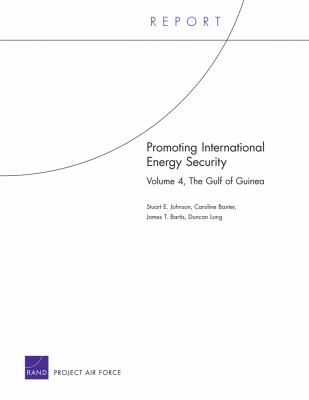
e-Book
|
Promoting international energy security. : the Gulf of Guinea. Vol. 4 :
Copies
0 Total copies, 0 Copies are in,
0 Copies are out.
Title
Promoting international energy security. : the Gulf of Guinea. Vol. 4 :
Call No
HD9502.U62
Digital Link
Authors
Subjects
Language
English
Published
Santa Monica, CA : RAND, 2012.
Publication Desc
1 online resource (xv, 53 p.) : col. ill., col. maps.
ISBN
9780833068446









